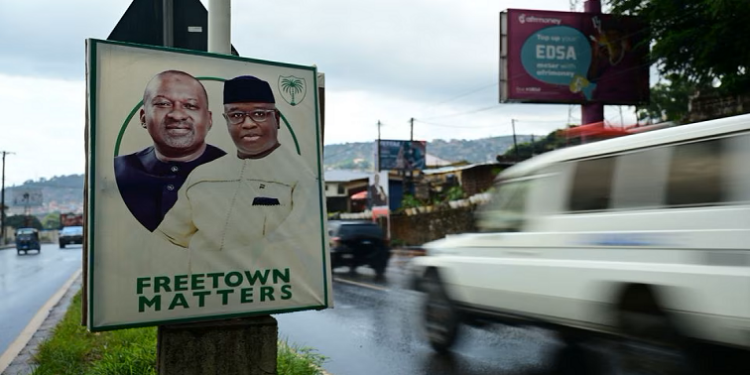Voters in Sierra Leone head to the polls on Saturday for a national election which the main opposition party hopes will see public frustration with deep economic hardship foil President Julius Maada Bio’s re-election bid.
About 3.4 million people are expected to vote in the presidential and legislative poll after a campaign whose final stage was marred by tensions that led to the cancellation of rallies and clashes at an opposition gathering on Wednesday.
Bio, 59, is running for a second term against 12 opponents. The race is expected to be close between him and Samura Kamara of the main opposition All People’s Congress (APC) party, who narrowly lost to Bio in the last election in 2018.
While no incumbent has lost in the West African nation’s recent history, the APC has banked on an enduring cost-of-living crisis tipping the balance in its favour after inflation soared to its highest in over 20 years in 2022 while the national Leone currency slumped 60% in value.
The downturn has stalled hopes of economic progress in the wake of the devastating Ebola epidemic that peaked in 2014 and the 1991-2002 civil war. Widespread underemployment persists with over half of the population living in poverty, according to the World Bank.
“My hope is that the person who emerges as president will look into the high cost of living,” said 20-year-old street vendor Abibatu Conteh, who sells cooking utensils and flip-flops.
“When I go from house to house to sell, people complain about the economic situation. I walk the whole day and can’t sell much.”
Bio’s camp blames the economic malaise on external factors such as the COVID-19 pandemic and the war in Ukraine. His chances have been boosted by the support of another opposition leader, Kandeh Yumkella, who came third in 2018 and is not running this time.
Two days ahead of the vote, Information Minister Mohamed Rahman Swaray said if Bio retains the presidency, he will focus on job creation and agricultural development to kickstart growth and improve living standards.
“We will do a lot more things to ensure people are comfortable,” he told Reuters in an interview in a Freetown cafe. “We understand times are hard but we are getting out of the woods.”
Unusually violent protests last year over rising prices have raised fears of political unrest. Bio and Kamara have reported small-scale attacks on their supporters, while the APC’s recent questioning of the independence of election officials has raised tensions.
Both sides have called for calm. But there are concerns the situation could deteriorate, particularly if no candidate secures 55% of votes cast, necessitating a runoff between the top two candidates two weeks after the announcement of the first-round results.






 WhatsApp us
WhatsApp us 

